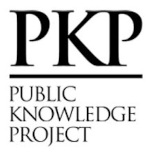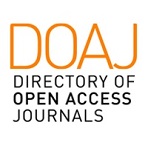Practice-led doctoral research and the nature of immersive methods
DOI:
https://doi.org/10.29147/dat.v3i2.98Keywords:
Embodiment, Field journal, Immersive photography, Poetic register, Practice-led, Practice-based inquiryAbstract
Practice-led research enables art and design practitioners approaches to discovering, applying and communicating original knowledge that have direct implications for their practice. Since the 1980s, internationally, the emergence of doctoral, practice-led research has opened the door for such practitioners to develop distinctive methodological approaches to the way they navigate knowing in action. This article discusses one such project. Within it, immersive and reflective methods have been developed to increase the depth of communication between a photographer and the land he records. The thesis, “The Process of Immersive Photography: Beyond the Cognitive and the Physical”, considers relationships between land as a living system and a form of researcher embodiment. This embodiment engages a process of indwelling that draws on physical, cognitive and spiritual ways of sensing and knowing. The researcher’s immersions are documented in a field journal that moves between poetic, narrative and analytical writing registers in an attempt to account for the complexity of what he encounters.
Downloads
References
Bennett, Jane. 2009. Vibrant Matter: A Political Ecology of Things. Durham: Duke University Press.
Brabazon, Tara, and Zeynep Dagli. 2010. “Putting the Doctorate into Practice, and the Practice into Doctorates:
Creating a New Space for Quality Scholarship Through Creativity. Nebula 7 (1-2):23-43.
Brownhill, Richard J. “Michael Polanyi and the Problem of Personal Knowledge.” The Journal of Religion 48, no. 2 (1968): 115-23. doi: https://doi.org/10.1086/486119
Candy, Linda. 2006. Practice Based Research: A Guide. CCS Report 1:1-19.
Clifford, James, and George E. Marcus. 1986. Writing Culture: The Poetics and Politics of Ethnography. Berkeley, CA: University of California Press.
Coumans, Anke. 2003. “Practice-led Research in Higher Arts Education.” On the Move: Sharing Experience on the Bologna Process in the Arts: 62-67.
Csikszentmihalyi, Mihaly. 2008. Flow: The Psychology of Optimal Experience. New York, NY: Harper Perennial Modern Classics.
Davies, Charlotte Adele. 2005. “Landscapes of Ephemeral Embrace: A Painter’s Exploration of Immersive Virtual Space as a Medium for Transforming Perception.” (Doctoral thesis, University of Plymouth, Plymouth, UK).
de Certeau, Michel. 1984. The Practice of Everyday Life, trans. Steven F Rendell. Berkeley and London: University of California Press.
Deleuze, Gilles, and Félix Guattari. 1988. A Thousand Plateaus: Capitalism and Schizophrenia. London, UK: Bloomsbury Publishing.
Denzin, Norman K., and Yvonna S. Lincoln. 2000. Handbook of Qualitative Research. Thousand Oaks, CA: Sage.
Douglass, Bruce G., and Clark Moustakas. “Heuristic Inquiry the Internal Search to Know.” Journal of Humanistic
Psychology 25 n.3 (1985): 39-55
Dummett, Michael. 2006. Thought and Reality. Oxford, UK: Oxford University Press.
Gray, Carole. “Inquiry Through Practice: Developing Appropriate Research Strategies. No guru, no method” (1996): 1-28.
Hamilton, Jillian, & Jaaniste, Luke. A Connective Model for the Practice-led Research Exegesis: An Analysis of Content and Structure. Journal of Writing in Creative Practice 3, n. 1 (2010): 31-44.
Heidegger, Martin. 1968. What is Called Thinking? New York: Harper and Rown.
Handelman, Don, and Galina Lindquist, eds. 2005. Ritual in Its Own Right: Exploring the Dynamics of Transformation. New York, Oxford: Berghahn Books.
Ingold, Tim. “The Temporality of the Landscape.” World Archaeology 25 n.2 (1993):152-174.
Ingold, Tim. “Culture on the Ground - The World Perceived Through the Feet.” Journal of Material Culture 9 n. 3 (2004):315-340.
Ings, Welby. “Managing Heuristics as a Method of Inquiry in Autobiographical Graphic Design Theses” International Journal of Art & Design Education 30 n.2(2011):226-241.
Ings, Welby. 2015. “The Authored Voice: Emerging approaches to exegesis design in creative Pracgher PhDs,” Educational Philosophy & Theory 47 n.12(2015): 1277-1290.
Johnson, Lesley, Alison Lee, and Bill Green. “The PhD and the Autonomous Self: Gender, Rationality and
Postgraduate Pedagogy.” Studies in Higher Education 25 n.2 (2000):135-147.
Jones, Timothy Emlyn. 2006. “A Method of Research for Reality: Research Degrees in Art and Design”. In Thinking Through Art: Reflections on Art as Research, edited by Katy MacLeod, and Lin Holdridge, 226–240. London: Routledge.
Keats, John, and Hyder Edward Rollins. 1958. The Letters of John Keats, 1814-1821. Vol. 2: Harvard University Press.
Kenny, Gerard. “An Introduction to Moustakas’s Heuristic Method.” Nurse Researcher 19 n.3(2012):6-11.
Kleining, Gerhard, and Harald Witt. 2000. “The Qualitative Heuristic Approach: A Methodology for Discovery in Psychology and the Social Sciences. Rediscovering the Method of Introspection as an Example.” Accessed May 24, 2018. http://www.qualitative-research.net/index.php/fqs/article/viewArticle/1123.
Marshall, Catherine, and Gretchen B Rossman. 1995. Designing Qualitative Research. Thousand Oaks, CA: Sage.
Meduna, Veronika. 2017. “Bats. In Te Ara - the Encyclopedia of New Zealand”. Accessed December 17, 2017. http://www.TeAra.govt.nz/en/bats.
Moustakas, Clark E. 1990. Heuristic Research: Design, Methodology, and Applications. Newbury Park, CA: Sage Publications.
Nelson, Robert. 2004. “Doctoralness in the Balance: The Agonies of Scholarly Writing in Studio Research Degrees.” Text: Illuminating the Exegesis. Special Issue 3. Accessed 24 May, 2018. http://www.textjournal.
com.au/speciss/issue3/nelson.htm
Newbury, Darren. “Diaries and Fieldnotes in the Research Process.” Research Issues in Art Design and Media 1 (2001): 1-17.
Nobel, Keith. 1994. Changing Doctoral Degrees. London: Open University Press. Polanyi, Michael. “Tacit Knowing: Its Bearing on Some Problems of Philosophy.” Reviews of Modern Physics 34 n.4 (1962): 601.
Polanyi, Michael. 1967. The Tacit Dimension. Garden City, NY: Anchor.
Read, Herbert. 1974. A Concise History of Modern Painting. London: Thames and Hudson.
Salgado, Sebastiao. 2014. Genesis. Sao Paulo, Brazil: Taschen.
Schatzman, Leonard, and Anselm Strauss. “Field Research: Strategies for a Natural Sociology.” Social Forces 53, no. 2 (1974): 342-43.
Schön, Donald A. 1983. The Reflective Practitioner: How Professionals Think in Action. New York, NY: Basic Books.
Sela-Smith, Sandy. “Heuristic Research: A Review and Critique of Moustakas’s Method.” Journal of Humanistic Psychology 42 n.3 (2002): 53-88. doi. org/10.1177/0022167802423004
Smith, Hazel, and Roger Dean. 2009. Practice-led Research, Research-led Practice in the Creative Arts. Edinburgh,
UK: Edinburgh University Press.
Tebby, Susan. 1983. “Patterns of Organization in Constructed Art.” (Doctoral thesis, University College, London, UK).
Tilley, Christopher. 1994. A Phenomenology of Landscape: Places, Paths and Monuments. Oxford, UK: Berg.


























